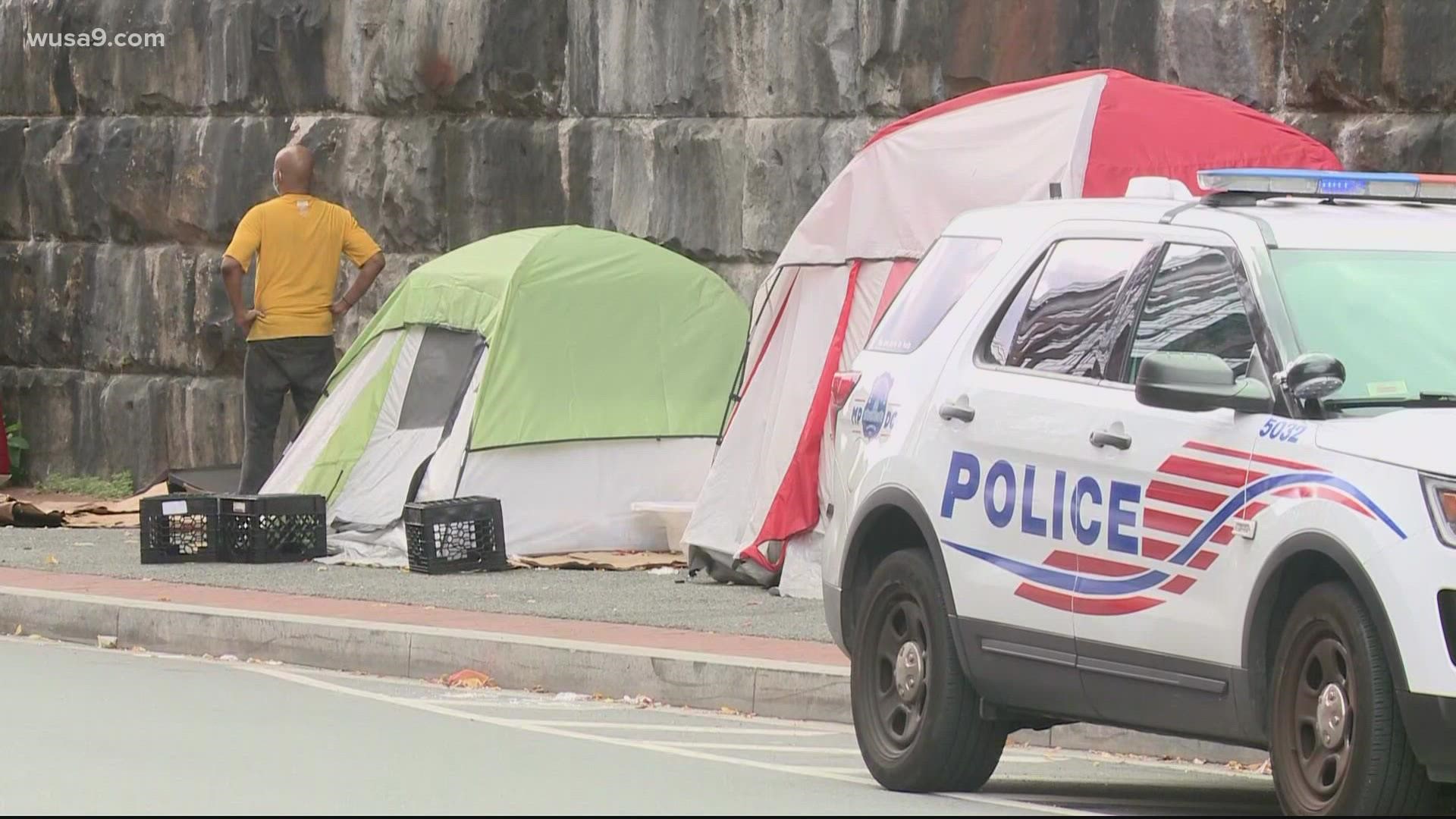WASHINGTON — More community members are pleading for District officials to stop plans to create "no-tent zones" after tensions rose over a pilot program to remove homeless encampments while offering unhoused residents housing and resources.
The Washington Area Bicyclist Association (WABA) is the latest organization to sign on to an existing letter campaign to ask Councilman Charles Allen, Councilwoman Brooke Pinto and the Office of the Deputy Mayor for Health and Human Services to stop the program, host a public meeting to fully explain the program and housing options and commit to not sweep any encampments until all residents are connected with safe and accessible housing.
"By establishing “no-tent zones,” the District is making it harder for our unhoused neighbors to connect with city services—including housing vouchers—and organizations that provide direct services," WABA said. "This process only further criminalizes their rights as people to exist in public space."
The city began clearing the homeless encampments at the L and M Streets underpasses in NoMa on Monday. DMHHS suspended the operation after a bulldozer driver was removing a tent while a man was still inside. The man was still sleeping in his tent and climbed out, according to a police incident report.
In a statement to WUSA9 on Monday, Councilman Allen said, "The goal all along has been to get housing for our neighbors living on the street – stable, safe, warm housing. We should be celebrating people moving off the street into apartments but what happened today was completely unacceptable."
Crews were only able to clear one side of M Street and removed some other tents on L Street. Concrete barriers replaced the space where the tents used to be on M Street. The entire street was closed off to pedestrians.
Some people were able to stay put with their tents the next day with city crews returning to only remove trash. Community advocates said some people were transferred to a hotel including the man inside the tent during the bulldozing incident. He was initially sent to the hospital for medical attention.
However, there are those who are still waiting, including Garrett Cooper. He has been waiting on housing after applying six months ago.
"We came and gave all these people our personal information and the bottom line is you're still in the same situation you were when you gave it to them," Cooper said.
At least community advocates spent most of the following day trying to figure out where the unhoused residents will move to with their tents if the city returns to complete clearing the encampment.
The pilot program has facilitated housing leases for up to 22 participants and an additional eight participants are in the process of moving into housing in the coming days, according to DMHHS. Participants who are eligible will be offered the Pandemic Emergency Program for Medically Vulnerable Adults (PEP-V) stays in the meantime.

